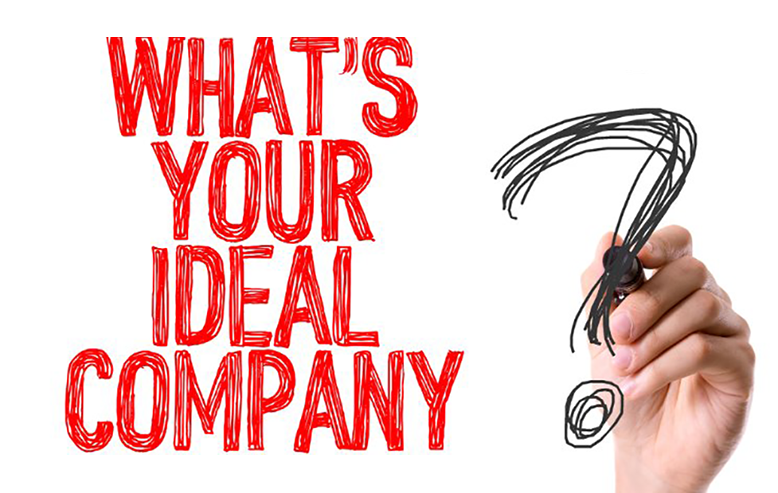 “You kids don’t know how good you have it nowadays. Why, when I was your age, I didn’t have meditation sessions and subsidized weekly yoga classes! I didn’t give feedback or share ideas that weren’t directly related to my specific job. I only had health insurance and a 401(k) plan dagnabbit. I did my job and only my job without input from anyone but my boss and by golly, I LIKED IT THAT WAY!”
“You kids don’t know how good you have it nowadays. Why, when I was your age, I didn’t have meditation sessions and subsidized weekly yoga classes! I didn’t give feedback or share ideas that weren’t directly related to my specific job. I only had health insurance and a 401(k) plan dagnabbit. I did my job and only my job without input from anyone but my boss and by golly, I LIKED IT THAT WAY!”
What we expect from our employers has changed a lot over the years. Some of us, like myself, have been lucky enough to work at organizations with an exceptional company culture. As I have matured in my role as head of HR for Shout! Factory, cultivating a unique company culture has risen to the top of the list of the things I believe are most important. I think a company’s culture is key to both keeping and attracting top talent. So how is your company culture? Can you answer yes to the question: do I love coming to work every day (ok, MOST days)? Then ask yourself why or why not. I have found this to be a good place to start in determining how to better your company’s culture– because, let’s face it, it can ALWAYS be better.
Here’s how I answer that question: Yes. I love coming to work because I have autonomy to do my job and am encouraged to use creativity to grow and expand it. I have a workspace that reflects my personality, my interests and my style. I have earned the respect of my boss and my fellow co-workers, and I respect them. I have free, unlimited access to coffee and Diet Coke. I have good health insurance coverage that is paid for by my company. I have a flexible work schedule that allows me time to pick up my son from preschool and still have time to play with him before bedtime. It is a pet-friendly office where dogs are allowed to roam free like buffalo of yore (if buffalo were much smaller and had leashes that is). I work with people I like. I work for a company that truly cares about me.
Nearly all of things I’ve identified were born out of Shout! Factory’s core values and all are a reflection of our pretty awesome culture. Early on I was quick to recognize that if I felt this way, then others probably did too. When I posed the same question to co-workers, the answers were sometimes the same as mine, while others differed. By listening to what others want out of their workplace culture, I have been able to find benefits that contribute to our company culture in ways I wouldn’t have thought of on my own. But always in positive and unique ways.
If you are in a position of power and influence, you are able to have a direct hand in shaping your company culture. And if you don’t think you have that influence, I would wager that you are wrong. You don’t have to work in the HR department to have an impact on the culture where you work. You don’t have to have a fancy title either. I sincerely believe if you are accountable, authentic and consistent in how you think, how you work and who you are, you can directly affect your company culture in a positive and powerful way. I’m reminded of the moral of The Lorax by Dr. Seuss (which is seared in my brain right now as it is one of my son’s favorite books as of late). At the end of the book the old Once-ler says to the young boy “Unless someone like you cares a whole awful lot, nothing is going to get better, it’s not.” Every one of us has a hand in shaping our culture, no matter what your title or department, we just have to care enough to do it.
Some employee benefits are born out of the company’s culture and some actually help create the culture. I see benefits as fitting into two buckets. The first being benefits that address our basic needs in life: health insurance, retirement savings, paid time off and the like. The second are benefits that address the quality of our life: wellness classes, helping others in our community and free unlimited access to caffeine. Both buckets are equally important in my view. And to compete with other companies for top talent, it’s important to continually review your benefits to ensure that you are offering benefits that underscore the kind of company you are, and the kind of culture you have.
As a small company with 60+ employees, I have found resourceful and creative ways to offer a variety of benefits which in my not-so-humble opinion make us a great place to work. I’ll share just a few examples. We are co-employees of a PEO (Professional Employer Organization, look it up) and are able to take advantage of big company benefits as a result. This relationship allows us to offer a number of excellent health insurance plans, discount products and services via an online employee only marketplace and access to an Employee Assistance Program – you know, things we wouldn’t likely be able to offer if we weren’t working with a PEO. If our employees volunteer at least 16 hours on their own time with a nonprofit before the end of the year, they get the days between Christmas and New Year’s Day off as paid time off. We have free 45-minute guided meditation sessions available twice monthly for employees. We reimburse employees up to $250 each year for the cost of taking classes – classes unrelated to their job. We’ve had employees take cooking classes, horseback riding lessons and even a magic 101 class. And in order to help employees find the time to take these kinds of classes after work, or pick their son up from preschool, we offer a flexible work schedule.
Our non-traditional benefits have been very well received over the years and have become a part of the bedrock of what makes Shout! Factory, well, Shout! Factory (you know, a unique and great place to work). I am always taking new suggestions, looking at what other progressive companies are doing and trying not to rest on my proverbial laurels. From free massages and offering health insurance plans paid 100% for employees to cultivating a culture that encourages shared ideas, frequent feedback and employee training and development – we have created and cultivated a company culture that is both personally and professionally rewarding. Thankfully, Shout! Factory is made up of people who care a whole awful lot.

